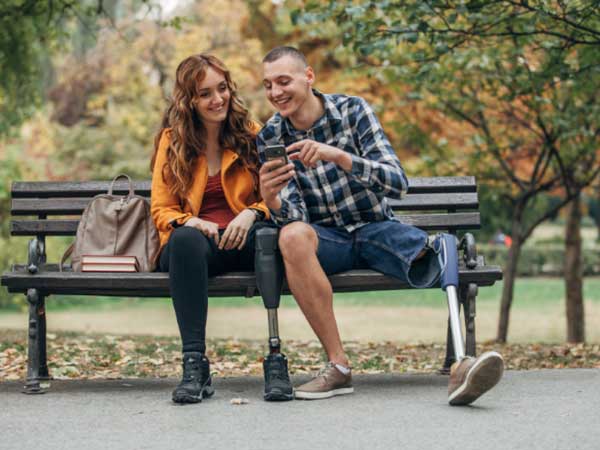Welcome back for the next installment of trending news and stories in the disability community. This edition features articles on the United States Deaf Women's National Team, advances in accessible travel and gaming, and much more.
If you come across a piece of media of any sort, from articles to movies and anything in between, please share with us at CEDHARS@uab.edu.
Sony Access Controller for PlayStation 5 | New MobilityOpens an external link.
 This article discusses Sony's new accessibility initiative with the Access Controller for PlayStation 5. Designed for gamers with disabilities, it features customizable buttons, joysticks and touchpads, aiming to enhance inclusivity in gaming. The controller allows users to adapt its layout to their specific needs, enabling a more comfortable and enjoyable gaming experience. Sony collaborated with accessibility experts to ensure the device meets diverse user requirements, reflecting a significant step towards making gaming more accessible and accommodating for all players.
This article discusses Sony's new accessibility initiative with the Access Controller for PlayStation 5. Designed for gamers with disabilities, it features customizable buttons, joysticks and touchpads, aiming to enhance inclusivity in gaming. The controller allows users to adapt its layout to their specific needs, enabling a more comfortable and enjoyable gaming experience. Sony collaborated with accessibility experts to ensure the device meets diverse user requirements, reflecting a significant step towards making gaming more accessible and accommodating for all players.
At a major aircraft expo last month, two big players in aviation each unveiled their own innovative wheelchair-securement solutions that could revolutionize flying for disabled passengers. The securement systems of both Delta Flight Products and Collins Aerospace let wheelchair users remain in their chairs while flying and require little modification to airline cabins. Read more about the new designs and how close they are to taking to the skies.
This feature story profiles the United States Deaf Women's National Team (USDWNT), highlighting its challenges and achievements in soccer. Composed of deaf and hard-of-hearing players, the team faces communication barriers on and off the field but excels through American Sign Language (ASL) and visual cues. Despite limited recognition compared to the U.S. Women's National Team, the USDWNT competes internationally, promoting inclusivity and demonstrating their skill at the Deaflympics and other tournaments. Their journey underscores the resilience and talent within the deaf soccer community.
This story from Shape highlights women who are pioneering adaptive fitness, focusing on inclusivity and accessibility in exercise. It features leaders like Tanya Habecker, who advocates for adaptive cycling, and Chelsey Anderson, who promotes yoga for all abilities. These women challenge stereotypes and expand opportunities for people with disabilities, emphasizing the importance of tailored workouts and community support. Their efforts aim to create a more inclusive fitness landscape that celebrates diversity and empowers individuals of all abilities to engage in physical activity.
In response to criticism over a social media post, a disability advocate in Charleston explains their intention was to highlight the daily challenges faced by disabled individuals. The post, which depicted a personal moment of frustration, aimed to raise awareness about accessibility issues. The advocate clarified that their intent was not to offend but to foster understanding and support for disability rights. They expressed regret over any misunderstanding and emphasized the importance of empathy and inclusivity in discussions about disability.
In her column, a disability advocate reflects on her evolving perspective regarding social media use. She discusses how platforms can amplify disability awareness but also contribute to misconceptions and stress. She highlights the pressure to present a perfect image of disability and the emotional toll of negative comments. The advocate contemplates stepping back from social media to prioritize mental health and authenticity, suggesting a need for balance in using these platforms effectively for disability advocacy.
This column features a journalist from Saskatchewan who advocates for better representation of disability in media. She emphasizes the importance of journalists with disabilities telling their own stories to combat stereotypes and misconceptions. The journalist discusses her experiences as a person with a disability navigating the media industry, noting the lack of diverse perspectives in coverage. She calls for increased visibility and authenticity in media portrayals of disability to promote understanding and inclusivity in society.
Advancing Disability Equality in Media: Seven Key Action Points | UNESCOOpens an external link.
This article outlines seven key action points to advance disability equality in media. It emphasizes the importance of inclusive representation, accurate portrayal and ensuring accessibility across all media platforms. The points include promoting disability-sensitive reporting, training journalists on disability issues and fostering partnerships with disability organizations. It calls for integrating disability perspectives into media policies and practices, encouraging the use of inclusive language and leveraging media's influence to challenge stereotypes and promote social inclusion. The aim is to empower persons with disabilities and promote their rights through improved media representation.

